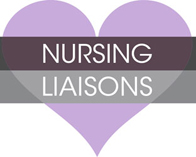Click + to expand answers
What is the Home Hospital Program?
The Home Hospital Program provides hospital-level care at home for acutely ill adults. The care is provided by a multi-disciplinary team. It is high-tech state-of-the-art care that a patient would receive in the hospital.
What is the goal of the Home Hospital Program?
Improve care, increase patient and caregiver satisfaction, and reduce cost.
Does the Home Hospital Program work?
Yes. There have been multiple studies that demonstrate that the Hospital at Home Model may be the most studied Health Service Delivery Model in the last 30-40 years. The evidence has proved the model is successful for the patient and the hospital.
What are the advantages of the Home Hospital Program?
Dr. David Levine, the Medical Director of Strategy and Innovation for the Brigham Health Home Hospital Program: research has found that patients have a 32% increase in physical activity, 70% reduction in 30-day re-admission rates, and 38% reduced cost of acute care episode.
Are patients satisfied after being in the Home Hospital Program?
Patient and family satisfaction has increased after being in the Home Hospital Program.
Research has shown that compared to similar hospitalized patients, Home Hospital patients experience better clinical outcomes: lower rates of mortality, delirium sedative medication use, and restraints. Fewer lab and diagnostic tests compared with similar patients in acute hospital care.
What is the most common diagnosis of the patients that enroll in the Home Hospital Program?
The common diagnoses are heart failure, infections, DVT, COPD exacerbations, cancer patients’ IV fluids, and post-surgical patient care.
What are the requirements for a Registered Nurse in the Home Hospital Program?
Minimum of two years of previous nursing experience in acute, emergency, or post-acute settings.
Flexible, willing to learn new skills, excellent communication skills, independent, organized, and able to work with various software technology. Must have a car for travel to patients’ homes. Prefer previous home care experience but not necessary.
How long is orientation?
Orientation is individualized to the RN’s needs. The program’s Nursing Director is Jodi Fitzpatrick. It will be a 3–6-week orientation 2-3 days a week. For orientation there is a commitment of 2-3 days per week for the first 2 weeks, to ensure success. IV skills are part of orientation.
What are the hours of the Home Hospital Program?
Hours are 9 a.m.-7:30 p.m. 7 days a week. 10-hour shifts. RNs are not required to do call at this point. Patients are all located within a 10-mile radius of Brigham and Women’s Hospital, Mass General Hospital, and BW Faulkner Emergency Rooms, RNs are required to have a car.
What is the structure of the RN’s day?
- Meet at the hospital at 9 a.m.
- Team meeting
- Team members assigned to the patient will do the morning visits together
- PTs get 2 visits per day from the RN
- Team works with inpatient pharmacy
- Goes to pt.’s house in the a.m. usually with the MD either in person or remotely
- After the first round of visits, the team goes back to the hospital for charting, etc.
- Afternoon RN returns to visit patients
- Returns to the hospital to finish charting
- Team-focused approach you will be working with a multi-disciplinary team including doctors, paramedics, PT, and OT.
What equipment is needed?
The Home Hospital Program will supply all equipment to the RN.
Who runs the program?
The program is run by Dr. David Levine at the Brigham and Women’s Hospital and Dr. Ryan Thompson MD MPH on the Mass General side.
How will the RN be paid?
The R.N. will be an employee of Nursing Liaisons, Inc and be paid every two weeks on the 15th and 30th.
Is Nursing Liaisons insured?
Nursing Liaisons is fully licensed and insured.
What are the requirements once orientation is finished?
Once orientation is complete, one to two shifts a week on average. Two weekend shifts a month is the minimum requirement.

